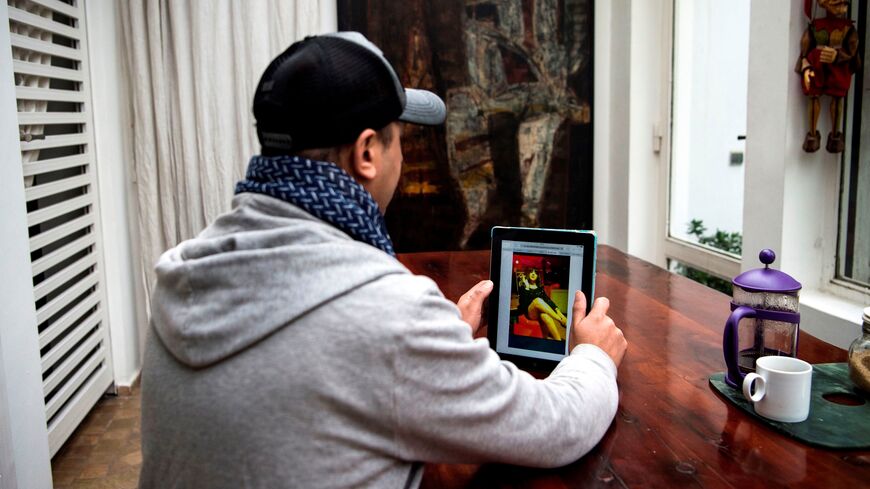RABAT — YouTube can be a space to start a business, educate and build a community. Unfortunately, it is also sometimes used to perpetuate hate among already vulnerable communities as in the case of Morocco's transgender activist Eden Ghali, a victim of such attacks.
Ghali, 28, has always been open about his journey as a transgender man originally from Morocco, a country that neither criminalizes nor recognizes the transgender community, leaving them in a dangerous limbo. For Ghali, putting his story out there is a way of helping like-minded individuals to feel less alone.
Negative and hateful comments are not new to Ghali, but a vicious online attack about two weeks ago by Abdelouahed Benomar and his millions of followers pushed him to the limit.
The Moroccan content creator — better known by his online name, B3a9li (“My Brain” in Darija) — posted three videos targeting Ghali and the transgender community. In the videos, B3a9li compared gay people to dirt and stated people like Ghali who identify or support the LGBTQIA+ community “are against Muslim and Moroccan values” and are part of a conspiracy aimed at destroying society.
B3a9li accompanied his content with screenshots of Ghali’s social accounts, prompting his viewers to start a boycott and flooding Ghali and his supporters with messages of hate.
Fighting back
Ghali used his social media profile to rally loyal allies. People posted pictures and reshared his story under #Ghali, and more than 1,000 people signed a petition to get B3a9li’s videos taken down. “It’s incredibly frustrating to know that these kinds of attacks can happen to anyone and that there is little that can be done to stop them,” Ghali explained in an interview with Al-Monitor.
This type of content, Ghali warned, “can lead to an increase in discrimination, harassment and violence against trans individuals.” In addition, the content leaves them “marginalized and isolated from society.”
YouTube took two weeks to respond to the reports and eventually removed three videos from B3a9li’s account. But the content had already taken its toll on Ghali and others involved. “The messages I received included threats to harm me; others told me I should not exist,” Ghali said.
Even though YouTube has now removed the videos, the company did not directly contact Ghali. “I was disappointed that YouTube did not issue an apology,” he said. “It is important for YouTube to take a stronger stance against hate speech and transphobia.”
Negligence
A 2022 study by Social Media Safety Index (SMSI) specifically ranked platforms on the safety they provide to their LGBTQ users, and YouTube ranked at 45%. The platform's official policy is that users are protected from "hate speech, harassment and cyberbullying based on protected attributes, including sexual orientation and gender identity.”
However, SMSI said, YouTube never claimed to train employees to understand the needs of LGBTQ users. In response, the index suggested that the platform establish a policy against “targeted deadnaming and misgendering.”
Despite YouTube's policy against hate speech, SMSI said there is limited information on what options the users have to “control the company’s processing of information related to their sexual orientation and gender identity.”
Therefore, a gaping hole exists in the way content is monitored. From the moment videos go live, vulnerable individuals are left without power over the information posted about them — such as in Ghali’s case.







